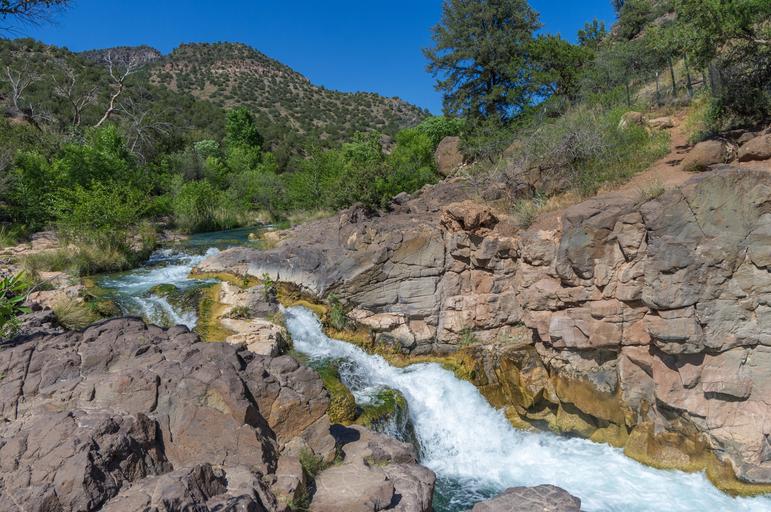MAKE A MEME
View Large Image

| View Original: | Flume_Trailhead,_Irving_Power_Plant_Site.jpg (4672x3104) | |||
| Download: | Original | Medium | Small | Thumb |
| Courtesy of: | www.flickr.com | More Like This | ||
| Keywords: arizona coconino national forest coconinonationalforest forest service forestservice fossil creek fossilcreek k20d national forest nationalforest pentax k20d pentaxk20d red rock ranger district redrockrangerdistrict tonto national forest tontonationalforest usfs waterfall trail waterfalltrail canyon desert forest hiking outdoors spring springtime trail camp verde campverde united states unitedstates outdoor riverbed river water landscape creek mountainside hill Fossil Creek produces 20,000 gallons of water a minute from a series of springs at the bottom of a 1,600 foot deep canyon. This permanent water source has created a stunningly beautiful, green riparian zone rich with flora and fauna at the bottom of this arid canyon in Arizona's high desert. Travertine deposits encase whatever happens to fall into the streambed, forming the fossils for which the area is named. These deposits create deep pools along the length of the creek, providing opportunities to find more secluded swimming holes than the popular pool at the waterfall. Fossil Creek is one of two "Wild and Scenic" rivers in Arizona. This designation was achieved when the Irving power plant was decommissioned, and removal of flume and dam on the creek allowed the creek to flow free. Increasing popularity has led to the Coconino and Tonto National Forests to implement a parking permit reservation system in 2016. Reserved parking permits allow visitors to have a parking spot available in their chosen parking lot. Many visitors drive two or three hours to get to the creek. The final descent to the creek at the bottom of a canyon is on an extremely rough, rocky jeep road. In prior years, the area would often be closed to entry when it reached capacity, and potential visitors would be turned away after the long, difficult drive. Photo by Deborah Lee Soltesz, May 4, 2016. For trail and recreation information, see Fossil Creek, Fossil Springs Wilderness, and the Coconino National Forest. Fossil Creek produces 20,000 gallons of water a minute from a series of springs at the bottom of a 1,600 foot deep canyon. This permanent water source has created a stunningly beautiful, green riparian zone rich with flora and fauna at the bottom of this arid canyon in Arizona's high desert. Travertine deposits encase whatever happens to fall into the streambed, forming the fossils for which the area is named. These deposits create deep pools along the length of the creek, providing opportunities to find more secluded swimming holes than the popular pool at the waterfall. Fossil Creek is one of two "Wild and Scenic" rivers in Arizona. This designation was achieved when the Irving power plant was decommissioned, and removal of flume and dam on the creek allowed the creek to flow free. Increasing popularity has led to the Coconino and Tonto National Forests to implement a parking permit reservation system in 2016. Reserved parking permits allow visitors to have a parking spot available in their chosen parking lot. Many visitors drive two or three hours to get to the creek. The final descent to the creek at the bottom of a canyon is on an extremely rough, rocky jeep road. In prior years, the area would often be closed to entry when it reached capacity, and potential visitors would be turned away after the long, difficult drive. Photo by Deborah Lee Soltesz, May 4, 2016. For trail and recreation information, see Fossil Creek, Fossil Springs Wilderness, and the Coconino National Forest. | ||||